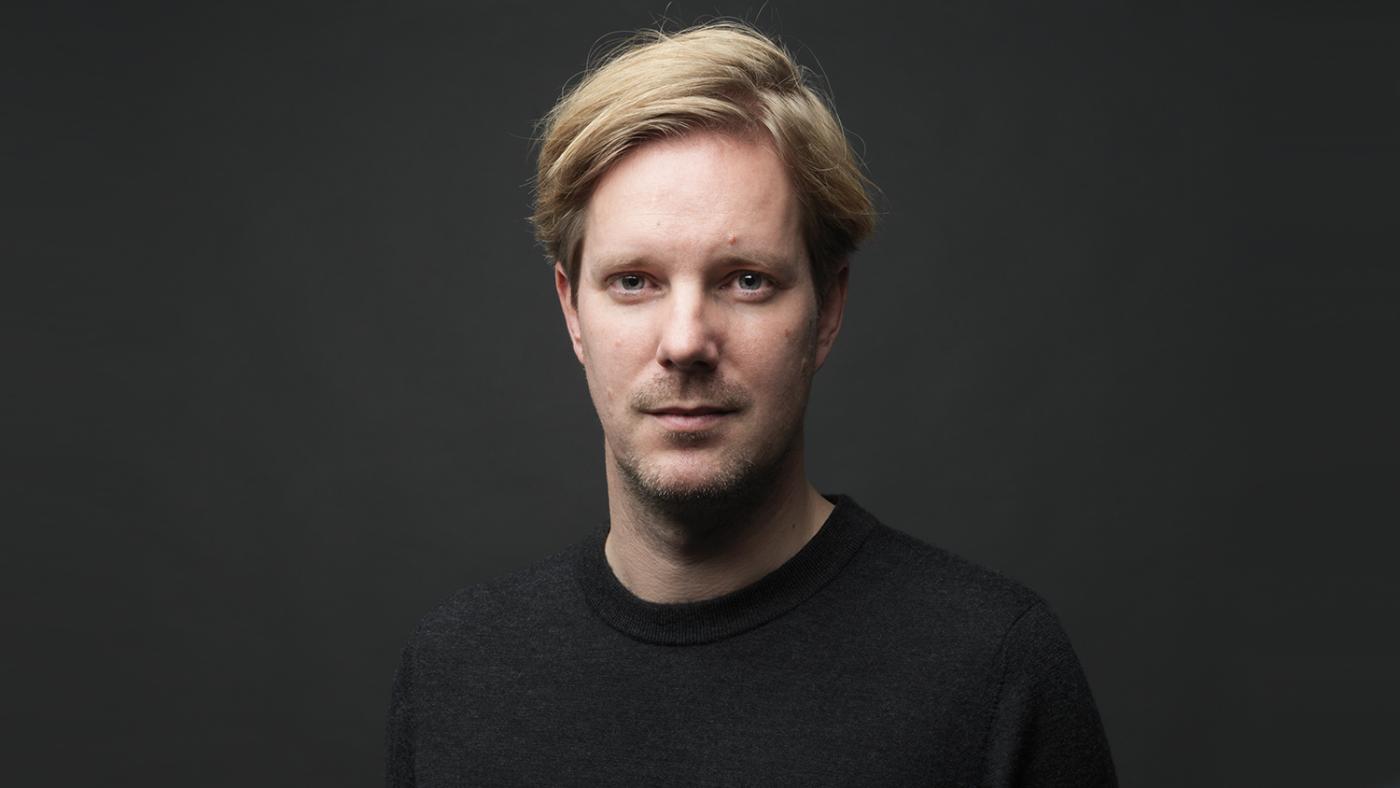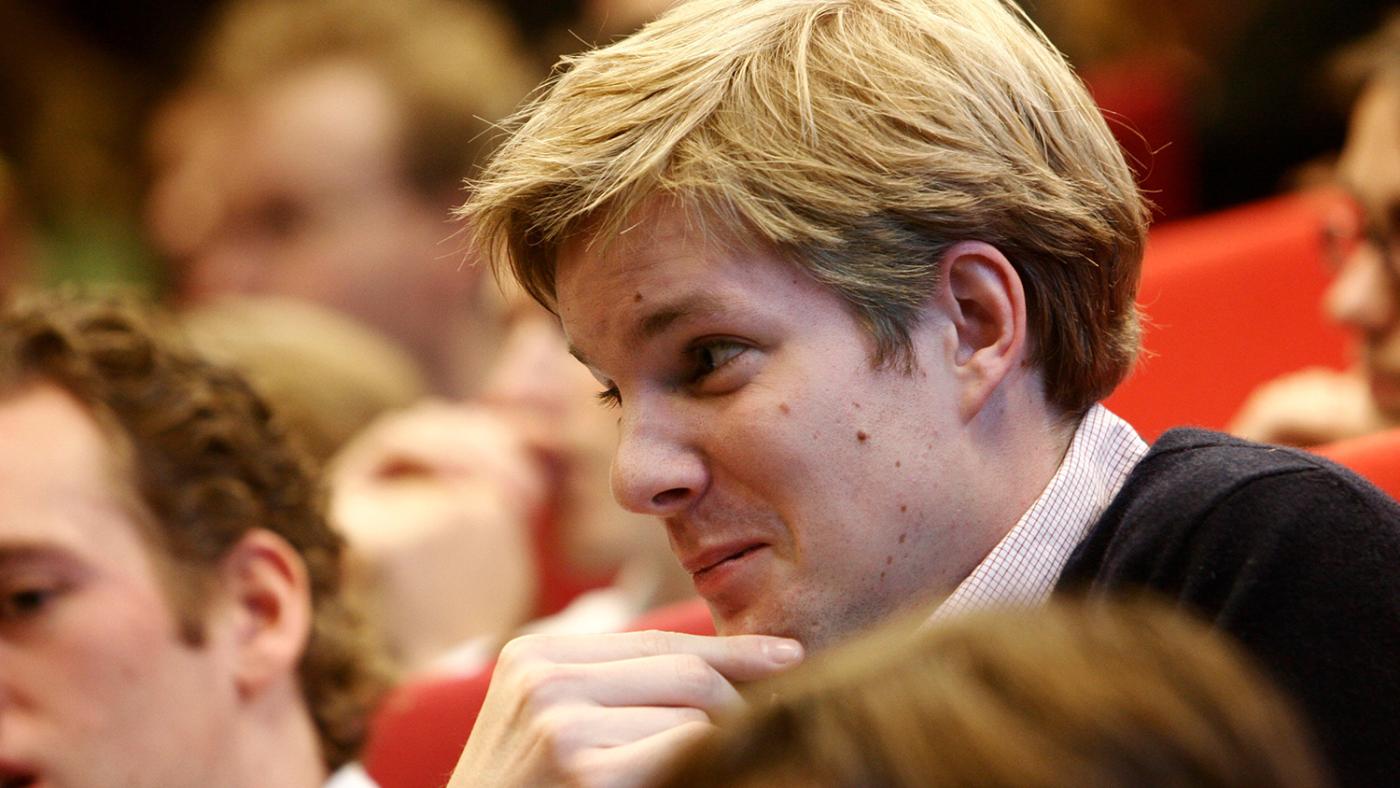Author Joost De Vries shares tips on how to write a good column
‘After a strong sentence, BAM! Just press Enter'

You studied journalism and write novels and essays. How do you see yourself: as a writer or as a journalist?
I never see myself as a journalist, really. In everything I do, I see myself as a writer.
When did you realise that you wanted to be a writer?
I actually lived a cliché: when I was a first-year high school student, I wrote a column titled Joost mag het weten (Joost Knows Best, Ed.) for the school newspaper. Writing has always been a natural part of everything I do.
9/11 happened on my second day of college in Utrecht. Suddenly, there was non-stop breaking news and commentary. That event kind of awakened an addiction in me. Nothing ever happened in my childhood.
I realised there was a big, angry world out there, which I penetrated by reading about it, both in the media and in literature. Also by writing about it. That's the crazy narcissism of journalism: everything that happens, happens for you. You feel like you just have to write about it, as if it were your secret source.
Who did you find fascinating to read at the time?
I read everything I could get my hands on, with angelic patience. Some of those books now make me wonder why on earth I read them. I felt obliged to read awful, far too thick, far too boring books, such as John Steinbeck, because I thought I was supposed to read them. That was so naive.
My actual addiction developed through the news. I also saw the world through literature, with books by Paul Auster, Jonathan Safran Foer, Arnon Grunberg, and Salman Rushdie, which dealt very directly with 9/11. Reading and writing are how you connect to the world.
You also studied history at Utrecht University and worked as an intern for UBlad. How did you end up there?
I spent my years in Utrecht simply following my gut. I was looking for an internship, and someone recommended UBlad to me. That was my first internship, and I loved it. I could write about anything, from administrative matters to student parties and campus trends.
How do you look back on those times?
It was an eye-opener for me. We had a column called Tatort, which was kind of an ironic reportage about something that happened at the university. UBlad was a sanctuary where I could do whatever I wanted stylistically. There, I learned that the trick is to find a new perspective or zoom in on a specific aspect each time, even though I often described the same things about academic life.
How did your literary career begin?
When my internship at UBlad ended, the editors asked me if I wanted to continue writing for them as a columnist. I thought: 'Wow, you're actually paying me to write a fun piece? I thought it was amazing. That was when I realised I could do something I really enjoyed and get paid for it. From that moment on, I never earned money doing anything else.
You've also been an intern at the weekly magazine De Groene Amsterdammer, where you eventually became deputy editor-in-chief.
Yes, doing an internship is probably the most important thing you'll do during your studies. Many people who are permanently employed at De Groene or De Volkskrant started out as interns.
I was already permanently employed at De Groene at 24, which is very young. As an editor, I had a pretty favourable position, where I could take interesting courses for my Master's degree and also write about all kinds of things. I did my best to use the subjects of my studies in my articles, so that I could combine everything. Everyone thought I was very well-read, when in fact I was just turning my assignments into articles.
What makes writing fascinating to you, after all these years?
Writing means being confronted with a blank Word document every time. But I've never felt like, oh, I'm in a rut. It's always up to you to create a world in that document. If you're trying to write a good essay or novel, you must compel the reader to follow along. You take them to a place they've never been before.

Joost de Vries working as an intern for UBlad, in 2006. Photo: Ublad Archive, Maarten Hartman
Joost de Vries (42) studied Journalism and History in Utrecht. He did an internship at Ublad when he was a student. Later, he became a freelancer for the publication, which was distributed weekly in all UU buildings.
He started as an intern at the weekly magazine De Groene Amsterdammer and worked his way up to editor and deputy editor-in-chief. Last year, De Vries was appointed the editor-in-chief of De Volkskrant's Sunday supplement.
He made his debut as a writer in 2010 with the book Clausewitz, about a young academic who goes in search of a cult writer believed to be lost. His subsequent novels, De Republiek and Hogere Machten, were both nominated for the Libris, the largest literary prize in the Netherlands.
You are now one of the members of the panel of judges of DUB's Campus Columnist Competition. What will you be looking for when reading the entries submitted by students and staff?
I expect a columnist to come alive. I want to be able to enter someone's world on paper, understand how they see the world, reflect on it, and then come up with an idea I wouldn't have thought of on my own.
I really hate moralising, someone who says, 'Oh, guys, we should all feel sorry for this'. No, I want someone who is in the thick of life and brings together everything they have seen, read and experienced on the streets, so to speak, in a seemingly casual way.
If someone can do that well, then a column is one of the most enjoyable forms of journalism. It's a form that many people underestimate; they assume that they just have to write down an anecdote or an opinion. It's so much more than that.
What are your specific tips for students and staff looking to become writers?
The Campus Columnist Competition is a fantastic opportunity to fill that blank page. I would also recommend doing an internship. Be careful not to be wordy: I always enjoy the challenge of removing 300 words from an article. I also have a golden rule: a good sentence deserves its own line. So, if you write a strong sentence, BAM! Press Enter.
Who are your favourite columnists?
People often send pieces to me that end with the following sentence: “And that's a shame”. And then you think: "Alright, yes, okay, we all think that. I want something original. I want to feel like I'm really getting to know someone."
Marja Pruis, who writes for De Groene Amsterdammer, and Sylvia Witteman, from De Volkskrant, did that very well for a long time. They write in such a way that you are completely drawn into someone's world of thought; you can see who they really are.
That takes a lot of courage...
Yes, definitely. You must be careful not to write something that is just safe or that everyone will agree with. I read a lot of columnists who aim for something nice and relatable, but that doesn't work for me. In my view, you have to go to that place where the magic happens. That's the art of it.
Would you like to become DUB's campus columnist in 2026? You can! Don't hesitate to participate in our contest. We will choose one columnist for the English page and one columnist for the Dutch page. The winners will get a column for a year and 1,000 euros each.
The deadline for submitting your columns is December 1, 2025. For more information on how to participate, please click here.
Comments
We appreciate relevant and respectful responses. Responding to DUB can be done by logging into the site. You can do so by creating a DUB account or by using your Solis ID. Comments that do not comply with our game rules will be deleted. Please read our response policy before responding.